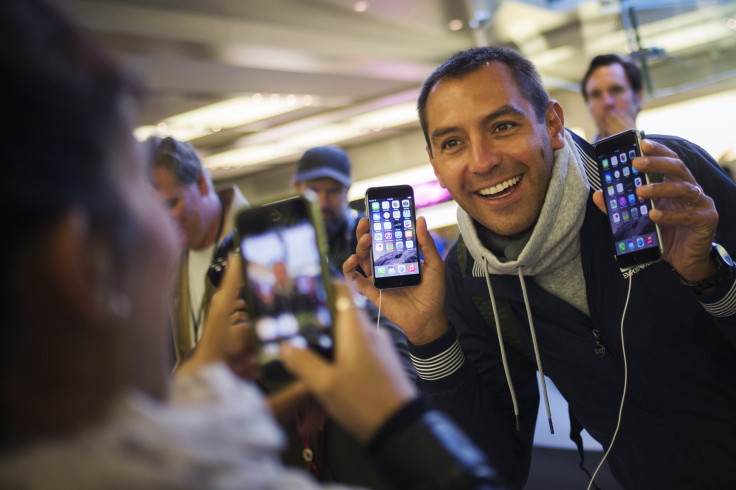Apple In Non-Crisis: How It Recovers From A Made-Up Controversy Called 'Bendgate'

Not even a week after launching the iPhone 6, Apple is digging itself out of a crisis that appears not to be real at all. Customer perception right now is that the iPhone 6 Plus can be bent under casual stress, and Apple's insistence that this doesn't reflect reality doesn't matter -- perception is reality, and Steve Jobs would agree. So how does the company extricate itself from a problem that doesn't really exist?
Apple is no stranger to public relations emergencies. Recall 2010's "Antennagate," in which gripping the iPhone 4 a certain way was believed to cause the phone to drop more calls than its predecessor. Recall the debut of Apple's laughably poor Maps app, riddled with errors. Now, in the same week as the "bendgate" news landed, Apple pushed out a minor iOS update to its customers that ended up crippling phones, disabling cellular service and TouchID security features. The update was withdrawn the same day, and it's a safe bet that a drastically improved, functional update is on the way.
"In today's marketplace, consumers are accepting of brands that make mistakes," says Allen Adamson, chairman for the North America region of brand consulting firm Landor Associates. "The key issue is in how they respond. Consumers don't expect brands to be perfect, but they expect them to act fast and remedy problems when they appear."
Apple has always acted quickly. Steve Jobs ended a vacation in Hawaii early to hold a press conference on Antennagate, then offered every customer with an affected phone a special cover to keep the phone's antenna unexposed. Tim Cook apologized for the flawed Maps app and it has since largely been fixed. The very same day that Apple released the buggy iOS update, it withdrew it.
When it comes to allegedly bendable phones, however, Apple's official statement on the matter is that only nine people contacted the company to complain of bent phones. This comes after a banner launch weekend in which Apple sold more 10 million new devices, so the company's report effectively says that such a small fraction of the whole is affected as to effectively be zero. The subtext here is that the "bending iPhone problem" isn't Apple's problem at all.
Now, all it takes is a Twitter search of the word "bendgate" to see that more than nine people are affected. "The new phones are made out of aluminum, which is one of the most malleable metals out there," says Anthony Martin, co-founder of iCracked, a company that dispatches phone repair specialists to customers needing various smartphone fixes.
"Should not we be amazed that his phone didn’t snap in half under this pressure? That the glass didn't fracture?" writes Apple pundit John Gruber in response a now-famous video in which a guy purposefully tries to bend an iPhone 6 Plus with what appears to be rather vigorous effort. "Under pressure like this, bending but not breaking seems like an extraordinary feature. If you feel pressure like this on your iPhone 6 in your pocket, you need looser pants. And if you put your phone in your back pocket and sit on it, I’m not sure what to tell you."
In order to get ahead of the story, Apple invited a slew of journalists to its testing facilities so that they might see how the company quality checks its phones for exactly this issue. This is huge — Apple is a company that loves its secrecy, so to tear back the curtain so drastically communicates that it is working unprecedentedly hard to change perception.
"The key to protecting a brand is to bend over backwards to do the right thing," says Landor's Adamson. The Next Web has already reported that Apple will replace bent phones for free in-store as long as the devices pass a "visual mechanical inspection," and replacing expensive electronic gadgets for free when a company is under no obligation to do so should certainly count as an extraordinary consumer experience. This jibes completely with Apple's retail employee training, who are repeatedly directed to "surprise and delight" their customers.
"We've had dozens of claims on the iPhone 6 since Friday, and none of them were about bends. We think the bending phone issue is one that will disappear with time, but we're going to keep a close watch on claims," says Jessica Hoffman, head of communications for warranty provider SquareTrade. "We think it's something the media has grabbed a hold of and it's taken on a life of its own. Damage to phones will continue to come from where it's always come from: drops and spills."
Already the narrative has started to move in Apple's direction:
Lack of an iPhone date in China is approx 100x more interesting than a few idiots breaking their phones
— Benedict Evans (@BenedictEvans) September 26, 2014Just stopped in an AT&T store to try and bend a 6 . You have to be kidding me. That is not bendable. $AAPL
— Walter Piecyk (@WaltBTIG) September 26, 2014The electronics-buying buying has gotten used to getting exactly what it wants. Nowadays our phones to have it all: huge screens, thin profile, powerful processors, batteries that last a day or two. As we get closer and closer to having a "perfect" go-anywhere-do-everything device, Apple and all other tech companies will continue entering unexplored territory and dealing with unexpected problems.
As Apple well knows, the only true problem would be to not respond to these in a way that satisfies the buying public.
© Copyright IBTimes 2024. All rights reserved.






















